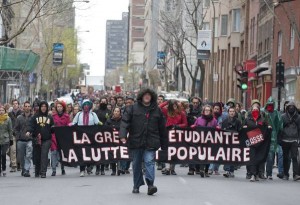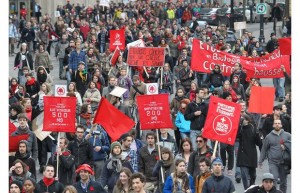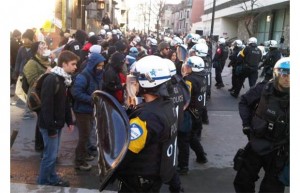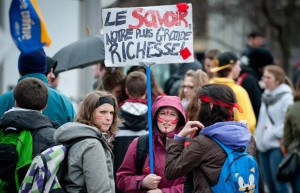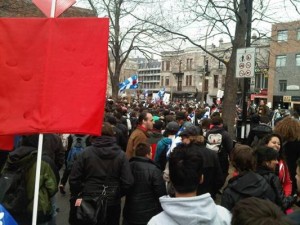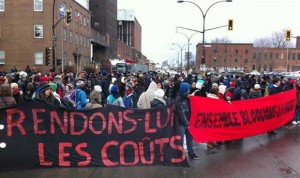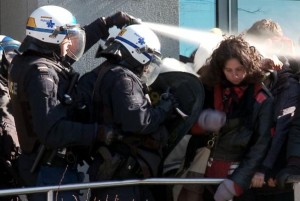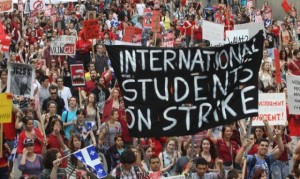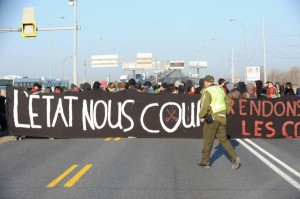Read More Richard Dufour, Quebec authorities seeking to criminalize student strike
Quebec’s Liberal government is using repression—arrests, court injunctions and the threat of cancelling the winter semester—to force an end to a nearly two-month-long strike of university and CEGEP (pre-university and technical college) students. Nevertheless, almost 200,000 students are continuing to boycott classes to oppose the Charest Liberal government’s plan to raise university tuition fees by 75 percent over the next five years, beginning in September.
Early last Wednesday, riot police chased and arrested more than 60 students who continued to demonstrate in downtown Montreal after the police had declared their demonstration illegal. The reason given by the police for dispersing, and later arresting, the student protestors was that they had perpetrated acts of “vandalism”, such as toppling tables and displays while moving through the chic Queen Elizabeth Hotel and the Eaton Shopping Centre.
Despite police statements to the contrary, there is no evidence to prove that the students committed any criminal acts. The arrests were filmed by CUTV, the Concordia University students’ community television station. The video, broadcast on the Internet, shows police shoving students prior to their arrest and ignoring students who questioned why they were being manhandled and arrested.
Montreal’s riot police have repeatedly used batons, tear gas, pepper spray and sound grenades to attack protesting students.
CUTV cameraman, Laith Marouf, was arrested for filming Wednesday’s arrests. CUTV reporter Sabine Friesinger, who was with Marouf, recounted what happened later the same day: “We were broadcasting live. Students were surrounded and pushed by police. They were also hit. The cameraman said several times: ‘I am media, we are on live.’ They definitively did not want us filming that. I have finally been able to retrieve the camera, but he (the cameraman), is still under arrest.”

 Follow
Follow